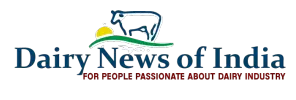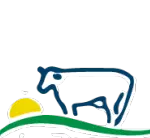Source:hindustantimes.com
Vigyan Gadodia’s romance with rural India began in 2005 when he, as head of the micro-finance vertical of YES Bank, began exploring opportunities in villages but realised that micro-financing wasn’t really helping farmers come out of poverty. It was around that time when he thought of becoming a rural entrepreneur instead.
In July 2006, he quit his job and decided to spend some time in a rural setting. Between 2006 and 2011, he dabbled in vermin-composting, organic farming and BPO for a rural NGO, and in 2012, this biochemical engineer from IIT-Delhi set up a 1.72 hectare dairy farm in Lisaria village, 70km from Jaipur, to provide pure and fresh cow milk to citizens and prove that cow farming was a viable business proposition.
The 40-year-old former banker and MBA from IIM Calcutta says promoting cows provides better, healthier and more nutritious milk than that of buffalo and helps to create productive assets.
“Every Indian knows that cow milk is better for them. It is lighter on the stomach and digests easily but farmers don’t rear cows since buffalo milk fetches more money. We have shown that there is a market for pure cow milk and customers are willing to pay a premium for it. But to tell farmers to keep cows, I had to show by example,” he said.
In four years, the herd strength at Sahaj dairy farm has gone up to 150, including calves and heifers, and Vigyan is home-delivering cow milk to 250 customers in Jaipur. But more importantly, almost every farmer in around 25 villages is now rearing cows, thanks to Gadodia.
“I thought if he (Vigyan) could quit everything for cows, why couldn’t we rear it? I bought one cow two years back, then one more six months later and in January 2015, bought three more. I now produce 50 litres of cow milk and am able to finance education of my two younger brothers,” says Sitaram Yadav, a farmer who had three buffaloes but has sold two.

There are 50 milking cows at Sahaj and milk production is around 500 litres. But, Vigyan has recently set up a processing plant at his farm and will also be able to collect cow milk from farmers. “The farmers will be my satellite farms. They will produce better quality milk since individual farmers can focus more on their cows. We have promised to pay a premium if they rear indigenous breeds,” he says.
The farm plans to start producing cow milk products like butter milk, shakes, yogurt drinks and ice cream. Vigyan’s company, Sahaj Inclusive Opportunities (India) Private Limited, has entered into a memorandum of understanding (MoU) with the Rajasthan University of Veterinary and Animal Sciences (RAJUVAS), Bikaner for a technology extension programme.
Vigyan’s elder brother, a polymer engineer from IIT Delhi who has been with Reliance Polymer for 20 years, also quit his job in December 2014 to join the farm.
“We are implementing technology at our farm which farmers can learn here and use it in their farms,” said Gadodia. Under the MoU, more than 20 farmers have recently been trained in hydroponics (a technique of using water as a medium of cultivation) at RAJUVAS for three days.
Comments
comments























